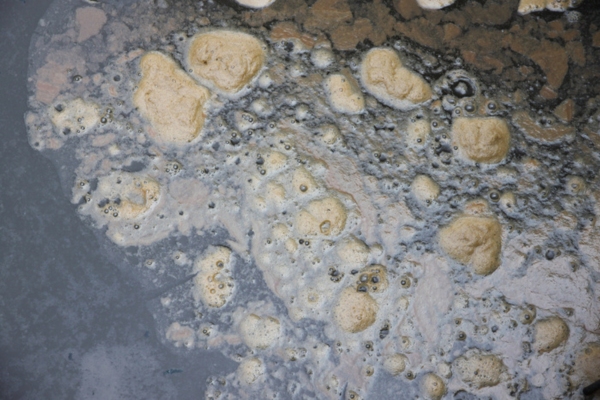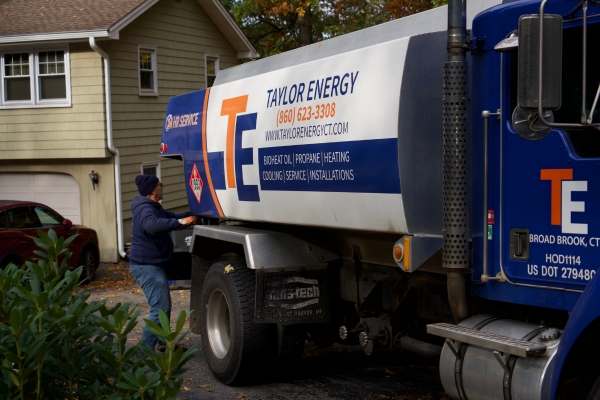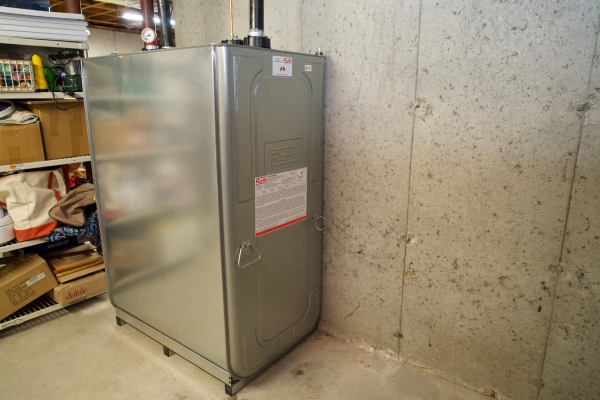Contents
- What Causes Sludge to Form in a Heating Oil Storage Tank?
- What Is Heating Oil Tank Sludge?
- What Leads to Fuel Oil Tank Sludge?
- Problems Linked to Fuel Tank Sludge
- How to Avoid Home Heating Oil Tank Sludge
- FAQ: Heating Oil Tank Sludge
- What Are the Early Indicators of Sludge Formation in Heating Oil Storage Tanks?
- Can Heating Oil Tank Sludge Shorten the Lifespan of My Heating System?
- How Frequently Should I Inspect My Heating Oil Tank for Sludge?
- What Should I Do If I Find Sludge During an Inspection?
- Are There Heating Oil Types That Help Prevent Sludge Formation?
- In Conclusion
- Contact Taylor Energy for Trusted Heating Oil Delivery Services
As cold weather sets in, your heating oil tank plays a crucial role in maintaining comfort by providing both warmth and hot water. Depending on your tank’s capacity and usage, the fuel inside the tank can last several months, ensuring your home stays cozy throughout winter.
Proper tank maintenance is essential to avoid common issues such as heating oil tank sludge, a thick, gooey substance that can develop over time and cause trouble for homeowners. While it’s impossible to prevent sludge completely, you can take steps to slow its formation, helping your oil tank function properly for its whole lifespan.
This article by Taylor Energy explores the causes and prevention of heating oil tank sludge.
Ensure Comfort. Rely on Taylor Energy for prompt and dependable heating oil delivery. Contact us today to schedule your delivery!
What Causes Sludge to Form in a Heating Oil Storage Tank?

Heating oil tank sludge forms over time under specific conditions. Understanding the factors that contribute to its development can help you prevent it. In the following section, we’ll examine the key elements involved, common causes, potential issues, and practical ways to minimize sludge buildup.
Stay Cozy. Choose Taylor Energy for timely and trustworthy heating oil delivery. Call now to arrange your delivery!
What Is Heating Oil Tank Sludge?
A heating oil tank is not only filled with oil, but also contains dirt, debris, rust, and moisture. This creates a perfect environment for microorganisms to grow. Over time, these particles settle at the bottom of the tank and combine to form thick sludge.
The risk of sludge buildup is higher in tanks that are left with leftover fuel for long periods, such as during the off-season when homeowners neglect their tanks. It’s often not until the colder weather returns that homeowners notice the issue, and fuel delivery professionals may encounter the sludge when attempting to refill the tank.
What Leads to Fuel Oil Tank Sludge?

Fuel oil tanks are equipped with a vent pipe that allows air to flow in and out. When fuel is delivered, air escapes through the pipe, creating a whistling sound. As the oil is used, air enters the tank to replace the fuel moving into the furnace or boiler, maintaining pressure balance inside.
However, cold, moist air can lead to condensation on the tank’s interior walls. Over time, rust forms, and flakes fall to the bottom. Leftover fuel reacts to light, heat, air, rust, water, and other internal elements, creating an environment where bacteria can thrive. These factors combine to form sludge gradually.
Looking for Trusted Oil Tank Services? Whether it’s installation or upkeep, Taylor Energy is here to help. Contact us today!
Problems Linked to Fuel Tank Sludge
Below are some of the complications that sludge in an oil tank can cause.
Lower Heating Efficiency
Addressing oil tank sludge takes effort, but it is essential for keeping the heating system operating at peak performance. Ignoring the issue will only allow it to worsen. This thick, sticky substance can block the supply line and obstruct the oil filter.
As a result, the system may be starved of the fuel it requires. Even if some oil gets through, a clogged filter will cut down efficiency. This means the system will consume more energy, leaving you with higher costs to keep your home warm.
Heating System Failure

Don’t overlook the formation of sludge. While it may not be an immediate crisis, it can gradually impair the performance of your HVAC system. The most serious outcome could be a system failure. Sludge can reach critical components and cause damage, leading to the furnace or boiler becoming unresponsive. This could result in costly HVAC repairs to restore functionality.
In some cases, oil tanks may need to be replaced due to leaks and accumulated sediments. If your tank is filled with rust, consider replacing it, as the weakened walls could lead to further issues down the line.
Stay Warm. Count on Taylor Energy for reliable heating oil delivery. Get in touch today to schedule your next fuel delivery!
How to Avoid Home Heating Oil Tank Sludge
Preventing sludge is always more effective than dealing with it later. Taking steps to avoid sludge formation will save you from the issues it causes. Use these strategies to keep your tank clean and free from clogs.
1. Arrange Regular Heating Oil Deliveries

Sludge tends to form more easily when fuel levels are low. As the tank empties, air fills the space, and moisture in the air condenses on the tank’s interior walls.
To prevent this, make sure to schedule your oil delivery before the tank is running on empty. Waiting until it’s nearly empty increases the chances of a fuel line blockage, which could disrupt the supply without warning and leave your home cold. Contact your local supplier in advance to ensure a timely delivery.
Reliable Heating Oil at Affordable Prices: Trust Taylor Energy for competitive rates and exceptional service. Contact us today!
2. Use Fuel Tank Additives – Heating Oil Treatments
A chemical additive can help prevent sludge from forming in your heating oil tank. Add it before your next delivery to break down existing sludge and make the tank easier to clean. Look for products that contain a dispersant compound to address sludge buildup effectively. Many options are available online.
When selecting an additive, consider features such as algae prevention, water removal, and wax inhibitors. These treatments break down particles, allowing them to pass through lines and filters more easily. Applying the treatment once per heating season can help maintain a sludge-free system.
Some heating oil companies already include additives in their oil to prevent sludge buildup. Be sure to check with your provider to see if their oil contains these additives before deciding to use a separate treatment.
3. Give Your Heating Oil Tank the Care It Deserves
Take the time to give your tank some attention by regularly replacing the oil filter. Additionally, schedule a professional tank inspection. Technicians can identify potential clogs and sludge buildup, addressing these issues before they result in more serious problems.
Stay Comfortable. Turn to Taylor Energy for reliable heating oil services. Contact us today to schedule your delivery!
4. Choose Premium Home Fuel Oil
Many homeowners view heating oil as a basic commodity, assuming all products are equal. In reality, premium oils have fewer impurities that can turn into sludge. Opting for these oils leads to better performance.
Seek a reputable supplier in your area and ask neighbors for recommendations on the best companies offering clean fuel and sludge prevention support. Their advice can help minimize your stress and keep your tank in excellent condition. They may also share simple preventive steps you can take at home to maintain your system.
5. Maintain a Full Heating Oil Tank

Many homeowners only schedule a refill during the colder season, allowing the tank to remain nearly empty through the spring and summer. This leaves the tank predominantly occupied by moist air, fostering the perfect environment for rust and sludge formation.
To prevent this, consider keeping the tank full, even when the heating system isn’t in use. The goal is to displace air and moisture, helping to prevent rust and bacterial growth from developing inside the tank.
Keep Your Home Cozy. Trust Taylor Energy for timely heating oil delivery. Contact us today to schedule your next delivery!
FAQ: Heating Oil Tank Sludge

What Are the Early Indicators of Sludge Formation in Heating Oil Storage Tanks?
In the early stages, sludge buildup may cause issues like inconsistent furnace performance, including trouble starting, uneven heating, or frequent system shutdowns. You might also notice clogged filters, slower fuel flow, or a decline in energy efficiency, which forces the heating system to work harder to maintain comfortable temperatures. Addressing these early signs quickly can prevent more serious damage and help keep your system running efficiently.
Can Heating Oil Tank Sludge Shorten the Lifespan of My Heating System?
Yes, heating oil tank sludge can significantly affect the lifespan of your heating system. Sludge buildup can block fuel lines, filters, and nozzles, causing your furnace or boiler to work harder than necessary. This increased strain leads to more frequent repairs, lower efficiency, and potentially early system failures. Regular maintenance and prompt sludge removal are crucial to extending the life of your heating system.
How Frequently Should I Inspect My Heating Oil Tank for Sludge?
It’s recommended to inspect your heating oil tank for sludge at least once a year, preferably before the start of the heating season. This annual check ensures your system is prepared for optimal performance and helps identify any sludge issues early on. More frequent inspections may be needed for older tanks or those prone to sludge buildup to maintain system efficiency.
Maintain Comfort in Your Home with Taylor Energy: Our dependable heating oil delivery and tank solutions keep your system running efficiently and your home warm. Reach out to us today!
What Should I Do If I Find Sludge During an Inspection?
If you discover sludge in your heating oil tank, it’s essential to have it cleaned by a professional. If not dealt with promptly, sludge can block fuel flow, damage your heating system, and raise energy costs. A professional cleaning safely removes accumulated debris, ensuring your tank and system work efficiently while reducing the likelihood of expensive repairs or replacements.
Are There Heating Oil Types That Help Prevent Sludge Formation?
Yes, premium, low-sulfur heating oil is effective at minimizing sludge formation. In addition, many suppliers provide heating oils with additives designed to prevent sludge buildup, reduce corrosion, and enhance system performance. Choosing treated or high-quality heating oil helps keep your tank cleaner and extends the operational life of your heating system.
In Conclusion
Although static, oil tanks have active interiors. Air and fuel continuously move in and out of the tank, causing moisture to condense on the walls, which leads to corrosion and supports bacterial growth. To prevent sludge buildup, keep your tank clean and full. Choose premium oil from trusted suppliers, and rely on professionals for more complex maintenance tasks to ensure your system stays in top condition.
Complete Oil Solutions with Taylor Energy: From dependable heating oil delivery to expert oil tank services, we keep your home warm and efficient throughout the year. Reach out to us today!
Contact Taylor Energy for Trusted Heating Oil Delivery Services
Taylor Energy ensures homes and businesses throughout Northern Connecticut stay warm and comfortable with reliable heating oil delivery. We prioritize quick, efficient service with high-quality oil at competitive rates, always keeping your comfort in mind.
We offer flexible delivery plans and financing options, tailored to your needs, to keep your home warm all winter. In addition to oil delivery, Taylor Energy provides a full range of HVAC services, from installations to emergency repairs, making us your one-stop shop for home comfort.
Partner with Taylor Energy for dependable service and a strong focus on customer satisfaction. Contact us today to get started!
You can click here to contact us now or call us at (860) 623-3308 to find out more! Click the link to view our service area.

Related Articles:
